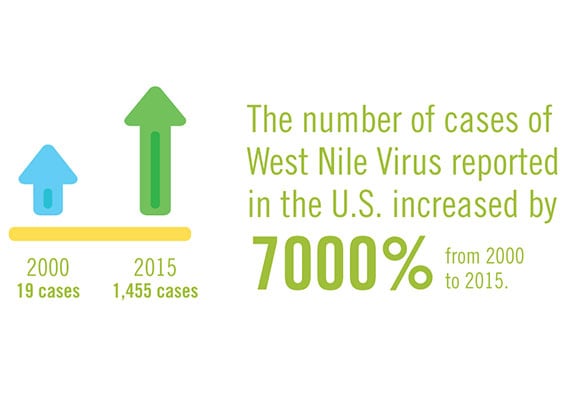For most people, the arrival of warm spring and summer weather ushers in pleasant thoughts of sunny days spent relaxing outdoors with friends and family, maybe at a beach or park or just hanging around at a backyard barbecue or pool party.
After a winter’s worth of bleak, gray, cold weather, few things replenish the spirit like a little rest and relaxation in the great outdoors. But as idyllic as all that sounds, there’s a very real danger lurking outside, and it comes from tiny uninvited guests – mosquitoes carrying the highly contagious West Nile virus (WNV).
Every year, about 2,000 cases of West Nile Virus are reported to the Centers for Disease Control and Prevention (CDC), but thousands more may become infected with the disease and not even know it. Up to 80% of those infected with WNV won’t develop any symptoms or will develop symptoms so subtle and relatively brief that the infection may go undiagnosed. In the other 20%, the infection can cause more pronounced symptoms, with a few developing severe and even life-threatening side effects.
Although the chances of developing these more serious side effects is slim, knowing what to look for can help ensure you seek medical attention at the first sign of symptoms, in addition to taking steps to prevent the illness in the first place.






